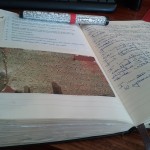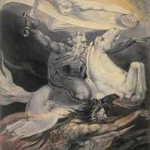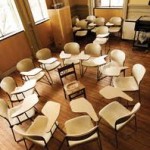I am working on my death. Well, actually, it’s more like I’m working on my life up to my death. But I’m trying to hold that singularly discomforting goal in mind — the one event no one avoids.
My friends are dropping around me. Like petals from a perfect white Iceberg rose, they drift into fatal diseases, into disability, into such thick depression that medication becomes impossible. While I work hard to remain some kind of calm centre for them. Somewhere they can park, for a moment, and know they’re loved and safe.
When I think about it that way, it seems like it  shouldn’t be so difficult. Shouldn’t take all I can muster, at a moment, to hug a dear friend diagnosed with absence epilepsy and crack the dumb jokes she needs to distract her. To let her know my love for hasn’t changed, even though so much of her life has.
shouldn’t be so difficult. Shouldn’t take all I can muster, at a moment, to hug a dear friend diagnosed with absence epilepsy and crack the dumb jokes she needs to distract her. To let her know my love for hasn’t changed, even though so much of her life has.
But if I call it like it feels, then I’m preparing for my death — learning how to live so that when death arrives black milk of morning we drink you at dusktime we drink you at noontime and dawntime we drink you at night — I can greet it. Not back up, not hide.
When I read poetry like Celan’s, above, I wonder how the Jews & Romanys and gays and disabled and the college professors and the intellectuals and artists — all rounded up by Hitler’s gangs — lived from day to day. I wonder how the men and women (and the children… the rare and precious children who survived) faced nightfall. What they dreamed, if they did, given the physical deprivation, the exhaustion. The desperation. And I wonder how they lived. Within the minutes of each hour. How they managed to draw breath, in the face of such relentless pain and sorrow.
Buddhism isn’t clear about the after life. Although some Buddhists believe in reincarnation — many, in fact — another large number of us don’t know. I have no idea what (if anything) comes after death. I don’t believe that I’ll see my mother, my father, my old ladies whom I miss more each year. Or my beloved father-in-law, whom I wish I could tell about his two amazing grandsons. His amazing granddaughter-in-law. Nothing really helps with missing the dead. At least not for me. I just have to breathe through it. Turn my quiet grief to good use through tonglen.
Since I don’t believe I’m going to heaven — or hell, for that matter 🙂 — there’s neither a carrot nor a stick to shape my living behaviour. I could do just what  I wanted, if I weren’t a Buddhist. If I weren’t a Unitarian, as well. Neither of these belief systems offers carte blanche just because they don’t proffer dogma. Buddhism offer lists — the Four Noble Truths, the EightFold Path, the Three States of Existence, the Three Refuges, the Five Precepts… There are more! Unitarian Universalists eschew dogma, also turning to a list — the Seven Principles.
I wanted, if I weren’t a Buddhist. If I weren’t a Unitarian, as well. Neither of these belief systems offers carte blanche just because they don’t proffer dogma. Buddhism offer lists — the Four Noble Truths, the EightFold Path, the Three States of Existence, the Three Refuges, the Five Precepts… There are more! Unitarian Universalists eschew dogma, also turning to a list — the Seven Principles.
Both Buddhists & Unitarians like guidelines, but not moral dictates. Even when there are strong suggestions — the Buddhist Precept that says don’t kill any living creature, for instance, is seen as a call for vegetarianism, by most Buddhists — not all Buddhists follow them. A lot of Buddhists eat meat, up to & including the Dalai Lama, I once read. So neither of my spiritual belief systems is much on absolutes. 🙂
 But death? They’re both pretty clear on the biology of that one. So here I am: trying hard to figure out how to live a good life, as I clear the hill that’s middle age. May Sarton wrote Plant Dreaming Deep before she was 60, talking about her ‘middle years.’ Mine are upon me.
But death? They’re both pretty clear on the biology of that one. So here I am: trying hard to figure out how to live a good life, as I clear the hill that’s middle age. May Sarton wrote Plant Dreaming Deep before she was 60, talking about her ‘middle years.’ Mine are upon me.
Buddhism is all about the here & now. So that’s where I’m trying to live. Here. Now. In this middle space. Hoping like hell the pale horse takes his time ~

